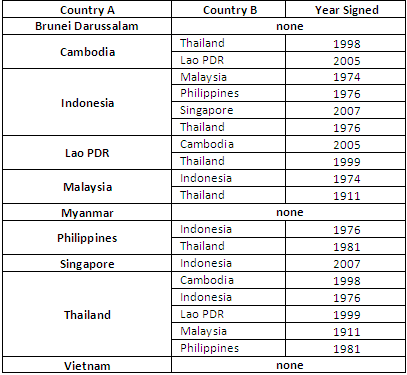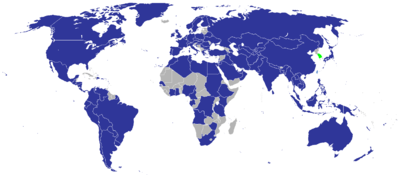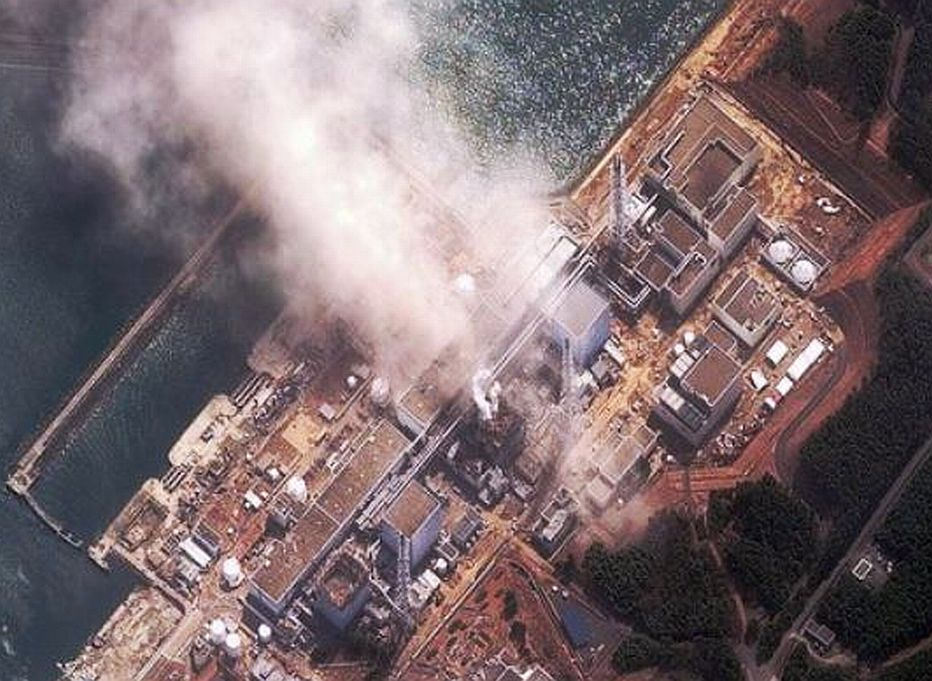Daily Report Archives
Established in December 1993, the Nautilus Institute’s *N*ortheast *A*sia *P*eace and *S*ecurity *N*etwork (NAPSNet) Daily Report served thousands of readers in more than forty countries, including policy makers, diplomats, aid organizations, scholars, donors, activists, students, and journalists.
The NAPSNet Daily Report aimed to serve a community of practitioners engaged in solving the complex security and sustainability issues in the region, especially those posed by the DPRK’s nuclear weapons program and the threat of nuclear war in the region. It was distributed by email rom 1993-1997, and went on-line in December 1997, which is when the archive on this site begins. The format at that time can be seen here.
However, for multiple reasons—the rise of instantaneous news services, the evolution of the North Korea and nuclear issues, the increasing demand for specialized and synthetic analysis of these and related issues, and the decline in donor support for NAPSNet—the Institute stopped producing the Daily Report news summary service as of December 17, 2010.

Raymund Jose G. Quilop, Associate Professor of Political Science at the University of the Philippines
and Secretary of the Philippine Political Science Association, writes “In making Southeast Asian states more receptive to the practice of extraterritoriality particularly in regard to preventing non-state actors from having access to WMD, it would be helpful to fully utilize existing mechanisms for exchanging information including the numerous platforms that bring together leaders, foreign and defense officials as well as making existing treaties such as the SEANWFZ adapt to the changed regional environment where nuclear proliferation is no longer solely the result of state action but involves non-state actors too. Indeed, the complexity of the challenge of terrorism is eventually pushing governments to become more receptive to the idea of working together, not merely in having their efforts coordinated but in finding ways to collaborate with one another.”
Go to the article
Peter Hayes, Professor, RMIT University and Executive Director of the Nautilus Institute, and Richard Tanter, Nautilus Institute Senior Associate, provide an overview of the Nautilus Institute’s exploration of two inter-linked but highly contested aspects of the strategic nuclear situation on the Korean peninsula: the complexity and uncertainty associated with United States assurances of nuclear extended deterrence to South Korea (and Japan), and the potential contribution a nuclear weapon free zone to shifting the current impasse concerning North Korean nuclear weapons.
Go to the article

Peter Hayes, Professor, RMIT University and Executive Director of the Nautilus Institute, writes, “In this Special Report, we compare and contrast six elements that constitute national power for the ROK and the DPRK. These are: Diplomacy and international relations, Military power, Economic power, Governance and internal security, Social development, Perceptions of future prospects—internal and external to the two Koreas. This comparison demonstrates that the ROK has achieved overwhelming superiority in every dimension of national power, especially in conventional military power. ”
Go to the article
Peter Hayes, Professor, RMIT University and Nautilus Institute Executive Director, and Scott Bruce, Nautilus Institute Director, write, “We suggest that as of 2009, the DPRK made the ROK the main target of its nuclear strategy rather than the United States as was the case from 1991-2009. The sinking of the ROK corvette Cheonan in 2010 provides a mini-case study of the collision of ROK and DPRK historical trajectories, and portends continuing clashes involving nuclear threat that need to be managed to avoid escalation to nuclear next-use. The artillery attack on Yeonpyeong island in November 2010 may be the second in what proves to be a series of such risky provocations. We conclude the paper by outlining the advantages of a ROK-Japan only nuclear weapon free zone relative to alternative ROK responses to the threat posed by the DPRK nuclear breakout.”
Go to the article
André Buys, Professor in the Department of Engineering and Technology Management at the University of Pretoria, South Africa, writes, “Many … non-state actors have knowledge, skills or capabilities of proliferation concern – as shown in the South African case with the Khan network. This case also highlights the fact that nuclear non-proliferations laws and regulations are necessary, but not sufficient, to prevent illegal nuclear trade … National registration for Defense export control appears to be a general practice in many countries and a very preliminary survey suggests that some countries might already have registers of nuclear capable individuals and organizations. Such information can therefore be used to track and monitor the activities of these individuals and organizations. The IAEA safeguards could be strengthened by requiring of states to submit their national information to an international register of nuclear capable individuals and organizations maintained and used by the IAEA.”
Go to the article
John Delury and Chung-in Moon write, “U.S. diplomats, lacking direct contact with North Korean counterparts, are in the dark about North Korea’s strategic intentions and negotiating positions. Even North Korea’s public statements are summarily dismissed as “empty words” or “blackmail”—even though North Korean behavior over the long term tends to conform to its high-level pronouncements. Instead of an engaged, empirical approach, policy decisions are being made on the basis of defector reports and disinformation, of preconceived ideas and wishful thinking. The response to the unsettling revelations at Yongbyon and tragic shelling of Yeonpyeong are case in point.”
Go to the article

David von Hippel, Nautilus Institute Senior Associate, and Kae Takase, Director of Governance Design Laboratory in Japan, note that reconstruction of the Japanese energy sector using renewable energy and energy efficiency technology will be cheaper, faster, cleaner, and more resilient than traditional thermal and nuclear power plants.
Read the report.
Read the Executive Summary.
Go to the article
Alexander Vorontsov, Director of the Department for Korean and Mongolian Studies at the Russian Academy of Sciences, writes, “We have concluded that the only real, workable method to first halt, then try gradually to limit, and, in the long run, eliminate North Korea’s nuclear programs and capability is for the main players to enter substantive negotiations on the issues as soon as possible. And while we closely monitor Pyongyang’s fulfillment of its obligations, we should not fail to meet our own.”
Go to the article
The Nautilus Institute released this
report as a rapid response evaluation of the implications of the March 11, 2011
earthquake and consequent tsunami off the northeast coast of Japan, focusing on
Japan’s electricity system, its energy security and the future of the nuclear
power plants located in the earthquake- and tsunami-affected regions.
Read the executive summary.
Go to the article




